
Do you prefer to eat your meals without meat?
Perhaps you do so because of personal beliefs, ethics, or you simply feel healthier and happier when you’re eating plants and not animals. Whatever your reasoning, just because you’re a vegetarian doesn’t mean you can’t become a bodybuilder.
Yes, you’ll start off at a bit of a disadvantage as it is far easier to consume your protein through meats and meat-based products.
However, that doesn’t mean becoming a vegetarian bodybuilder isn’t an option. You simply need to know what kinds of foods are available to you. Because, in reality, outside of your diet, your workouts and methods of training won’t change. You just need to know how to get enough protein to enhance your performance and get the most out of your workout.
Vegetarian Bodybuilding
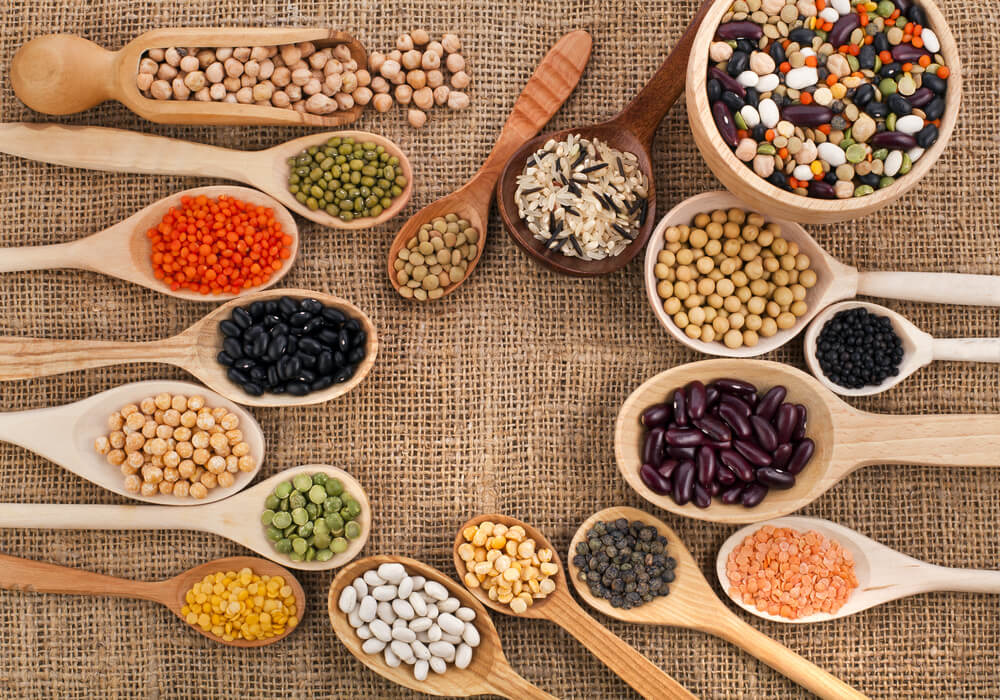
Lifting and workout out as a bodybuilder doesn’t rely necessarily on what you eat. As long as you’re bringing in enough calories to fuel your workout you’ll be fine.
However, you’re not simply going after any kind of calorie. You need calories that will both give you energy for your workout and to help repair and build your muscle fibers. You will cause considerable damage to your muscle fibers during your workout, and if you don’t consume protein to repair these areas of your body you may end up causing more problems or even reducing your muscle mass in the process.
Damaged muscle tissue that doesn’t receive protein to rebuild will not perform as well as it should. So, as a vegetarian bodybuilder, it is up to you to track down protein and do what you can to consume enough of it.
As you likely have figured out by now, finding vegetarian protein isn’t always the easiest. However, there are plentiful options if you look around. You could even become a vegan bodybuilder, although that has even fewer protein options. For now, we’ll focus on some of the best ways to consume protein and to maximize your workout potential while you remain a vegetarian.
What Kind of Vegetarian Are You?
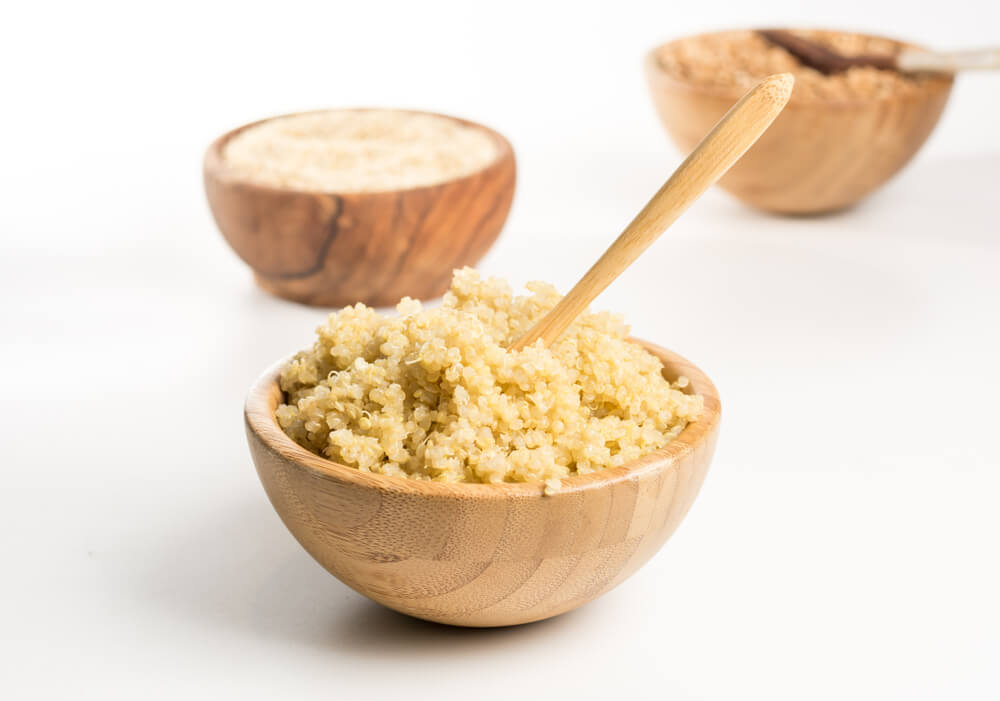
If you were to go outside and ask a dozen or so vegetarians about their dietary restrictions you might be surprised as to the answers you receive. Not every vegetarian consumes the same foods and some will avoid foods that, technically, may still be “vegetarian.”
First, do you consume fish?
Technically this is a kind of meat, although there are many vegetarians who still opt for fish. We’re not going to cover fish because it is an animal, but if you’re a vegetarian that deems fish to be alright then you’ll want to add plenty of fish to your diet. It’s a great source of low-calorie protein.
The next question you need to answer is whether you eat dairy and eggs.
These are both considered vegetarian meals because you’re not actually eating an animal. You are eating byproducts produced by animals, so if you were vegan these would be off-limits, but both are fair games as a vegetarian.
We will include these foods in our dietary breakdown because both are vegetarian friendly. If you avoid these kinds of eggs and dairy byproducts you’ll want to skip this information.
Protein Powder
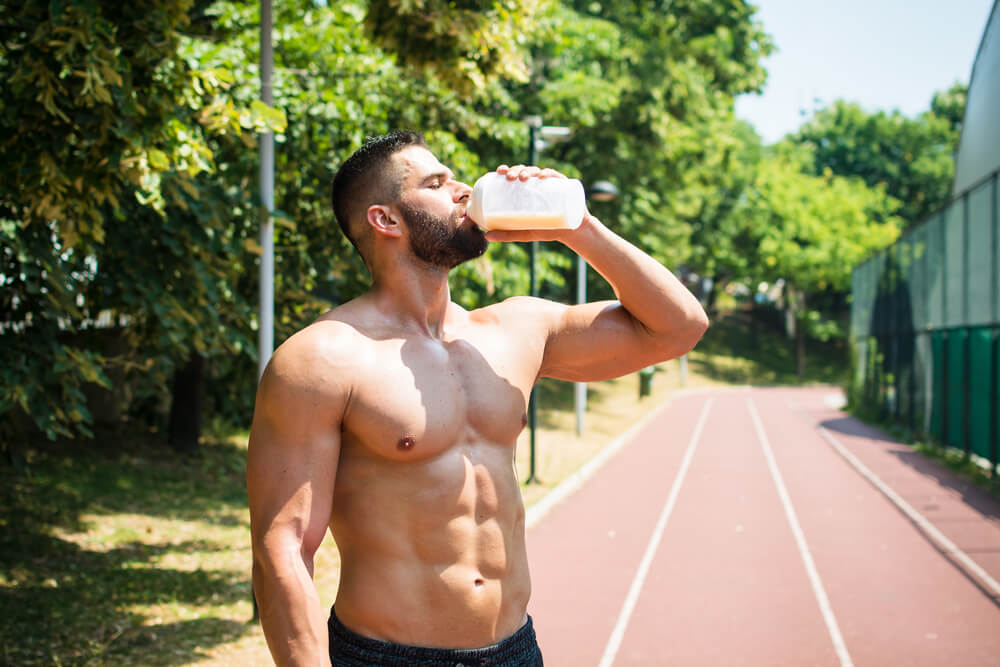
Protein powder is one of the best ways to consume low-calorie protein. It’s also an excellent meal replacement when you’re on the go. As a vegetarian there’s a good chance you’re not fully consuming the kind of protein you need throughout the rest of your meals, so you’ll want to supplement with protein powder. It’s up to you to decide which one is right.
There are plenty of protein powder options available, so you’ll find one that checks off your dietary restrictions box. First up is whey protein. It’s the least expensive option and the easiest to find. It also packs a low-calorie punch, so you can get more protein for your calorie buck.
If you check the ingredients list on the product you’ll likely find it is free of any animal proteins outside of dairy. However, each protein provider uses a slightly different recipe, so it’s always best to double-check.
Pea Protein Powder
If you’d like to avoid the dairy-based protein powders you can opt for pea protein powder. This is one of the best proteins that are vegetarian and vegan friendly while still offering a solid protein punch.
Many vegetarian and vegan protein powders out there are a bit limited in the amount of protein offered. You might end up with a third less protein using such a powder instead of whey, which means you’ll need to consume more, which in turn forces you to increase your calorie intake.
If you are looking to increase your calorie intake this isn’t a problem, but if you’re trying to cut while maintaining or even building muscles, this isn’t the best option. Just make sure to always read the ingredients label.
Also, some protein powders will try to trick you. A large protein number will be listed on the package, but if you look closely it’s actually if you have two servings at once. Compare all the protein numbers prior to buying.
You should also look at sodium and carbs. Carbs will give you energy prior to a workout. If using as a pre-workout calorie energy boost you’ll want a drink with carbs.
If you’re using it as a post-workout drink it’s up to you whether carbs are necessary, because in reality your body needs the protein to repair damaged muscle tissue. Looking at the sodium amount is helpful as some are extremely high in sodium, and if you’re doing three or four servings of protein powder a day you can easily overdo your sodium intake. Just some things to keep in mind.
Protein in Vegetarian Foods
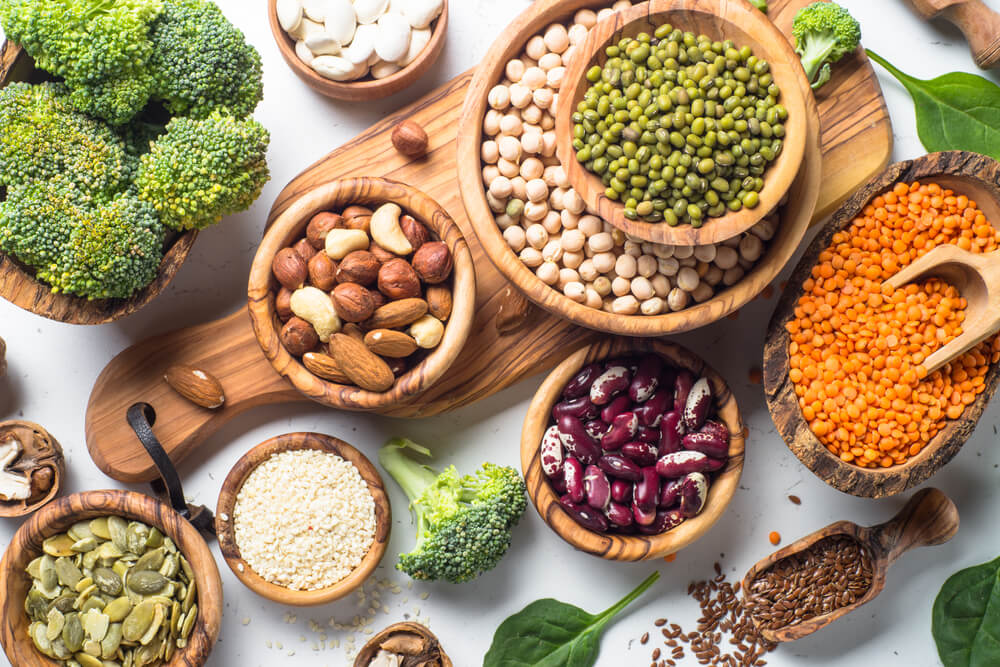
If you’re a traditional vegetarian you’re able to consume dairy and eggs. These are two exceptional options for consuming protein. There is about six to seven grams of protein in an egg. If you’re looking to cut out some of the heavy carbs you can opt for an egg white, which maintains much of its protein punch while significantly dropping down in terms of its calories.
If you’re in a cutting phase of your workout, or you’re just going for the lean look, egg whites is a fantastic source for protein and low calories. In fact, outside of a handful of protein powders, it might be the best option out there.
Milk and cheese is another excellent option. The number of calories found in cheese will differ based on the kind of cheese and the manufacturer, but milk is relatively consistent. In a single cup of 1% milk, you’ll get eight grams of protein.
You’ll probably have at least two cups of milk in a single glass serving, which gives you 16 grams of protein. Mike Barwis, former head of strength and conditioning for the University of Michigan football team and now the head of strength and conditioning for the Detroit Redwings instructs his players to drink chocolate milk post-workout.
This is because it packs a solid amount of protein, there are carbs for energy, and fats as well. In terms of a post-workout drink it is an excellent option (ESPN, 2008). Now, these are players who, during training, will burn thousands of calories a day, so blasting through the calories from chocolate milk is nothing. It may be too high in calories for your liking, but keep it in mind.
So what other food options are high in protein?
If you enjoy Japanese, Thai, or other Asian foods you’ll be happy to know that tofu and edamame are both high in protein. Tofu is made from bean curds that have been pressed together (in case you were wondering). Lentils is another great food choice.
In fact, when comparing this food option to other vegetarian-friendly foods it is high up there as an excellent way to go. Everyone cup of lentils has 18 grams of protein.
Now, you probably won’t be consuming an entire cup of lentils at anyone serving, but if you’re making a soup, you can easily add in a quarter or half cup of lentils. It also is packed with fiber. The cup of lentils will give 50 percent of your daily fiber. It’s also a slow-digesting carb, so if you’re consuming something early in the morning and need afternoon energy, lentils is the way to go.
Basically any kind of bean is a nice source of protein. While not as packed as lentils, it’s a viable option to add to your meals. Hempseed is another option. It’s also a complete protein, which means it has the entire branch-chain amino acid composition, which is something is commonly found only in meat (Healthline, 2016).
How Much Protein Is Needed?
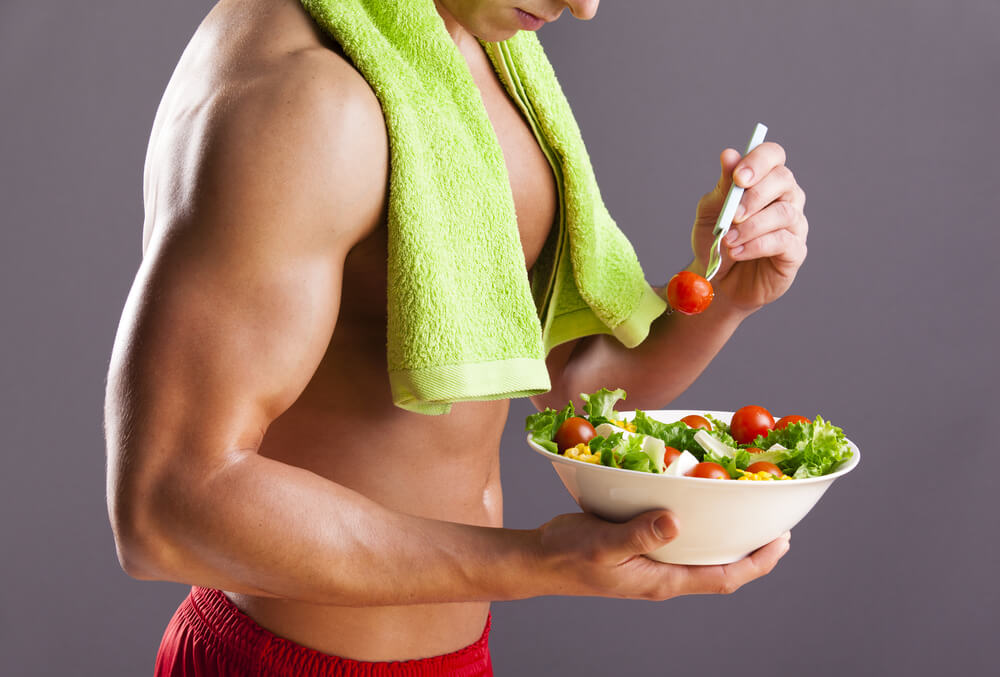
One of the most common questions anyone getting into weight lifting and bodybuilding asks is “how much protein is needed.” Regardless of dietary restrictions, this is always a top question for individuals looking to put on size and to build muscle.
If you go online and begin to sift through the information you’ll find all kinds of answers. Nobody seems to be able to agree on it, but there is a reason why: it depends on you and what else you’re eating.
In general, if you want to build muscle mass you’ll want to shoot for one gram of protein per pound of bodyweight. That isn’t hard science, because your metabolic rate and how your body uses different forms of calorie energy will differ from others. It’s simply an easy number to add up.
Do you weight 160 pounds?
Consume 160 grams of protein. Easy enough math.
The number will vary depending on what else you’re eating. Let’s say you go lean on fats and carbs. Naturally, you’re not eating meats, so you probably aren’t eating as many fats. Depending on your vegetarian diet you may also be going low on carbs as well.
Your body will use carbs as a fuel source. Carbs are consumed first during the digestion process, which means it is used as faster, instant energy. Prior to going to the gym, this is an excellent kind of energy as your body will be ready to use it sooner than proteins and fats.
But let’s say you don’t go that route. Maybe you’re going heavy on the proteins and light on the carbs and fats. If that’s the case your body will begin using protein as an energy source. It needs to use something for energy, after all.
Well, when that’s the case protein that would be going to your body to repair and build muscle is now being used as energy. This means if you weight 160 pounds and you consume 160 grams of protein a day, a large portion of this will go toward your workout. This may mean you’re left with 120 grams of protein, which is not enough to maintain and build muscle mass (Healthline, 2018).
As you can see there isn’t a strict number you need to focus on. Ideally, you’ll start with one gram of protein per one pound you weigh, but if you’re going lean with other forms of energy, or you’re not seeing any kind of size results, you’ll want to increase the amount of protein you’re consuming.
In Conclusion
You don’t need to change the way you workout. You don’t need to change up your schedule or how you perform either. You can become a bodybuilder, regardless of your dietary lifestyle (that is, as long as you keep it healthy). Yes, it is easier to track down proteins when you’re eating meat. There simply are more options. But vegetarian bodybuilding is more than possible.
With this information, you are able to find the necessary proteins you need to not only maintain your current physique but to increase muscle mass. So, as long as you take this information to heart, you absolutely can follow your dietary needs while becoming a bodybuilder, either at the professional or amateur level.
-Terry Asher
Terry Asher
Latest posts by Terry Asher (see all)
- Better Family – Product Review Liquid Daily 2 oz - Dec 16, 2024
- Post-Workout Recovery: The Key to Optimal Performance - Nov 25, 2024
- Pre-Workout Supplements – Everything You Need To Know - Nov 18, 2024






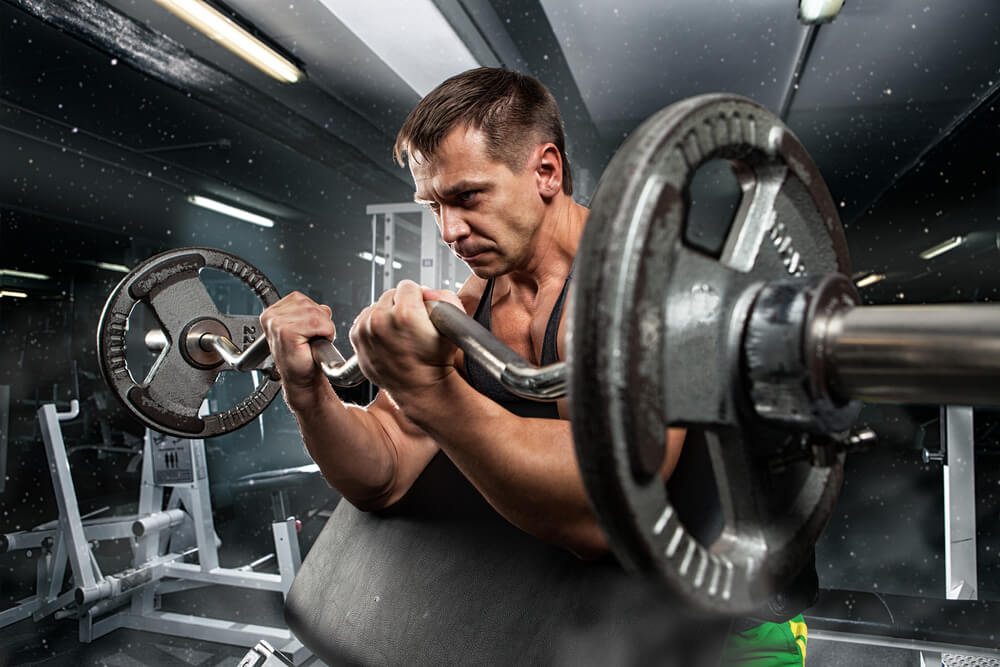




[…] Gym Junkies […]
[…] Read The Entire Article By Terry Asher Here. […]
[…] Read The Entire Article By Terry Asher Here. […]